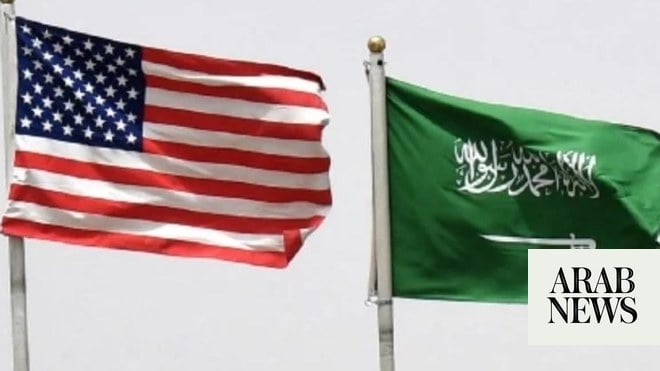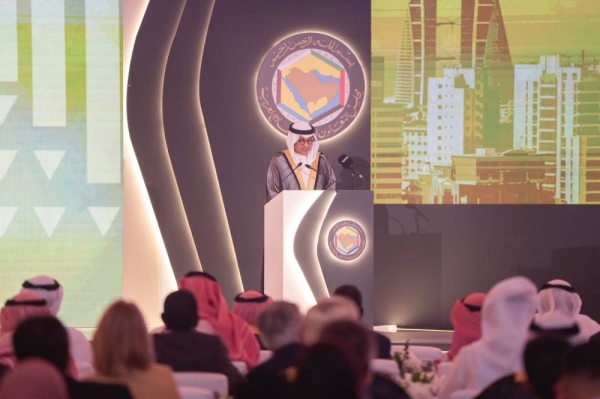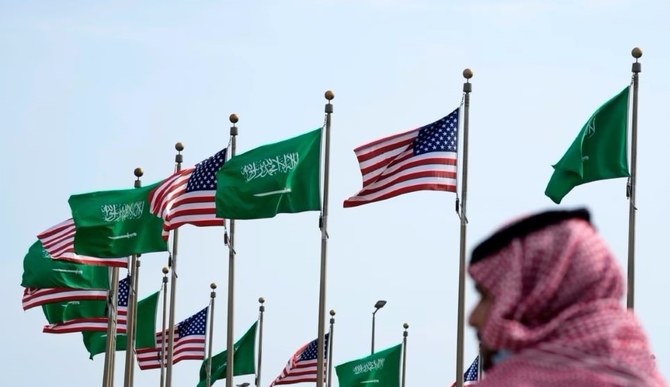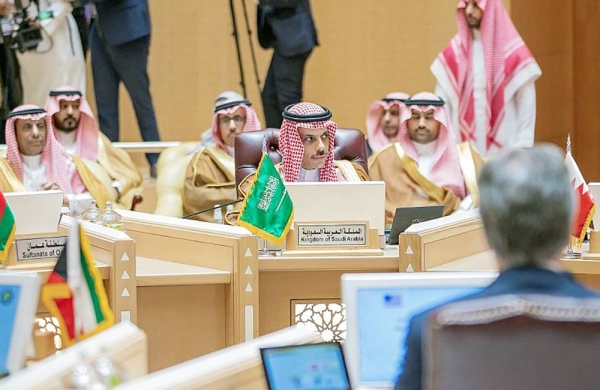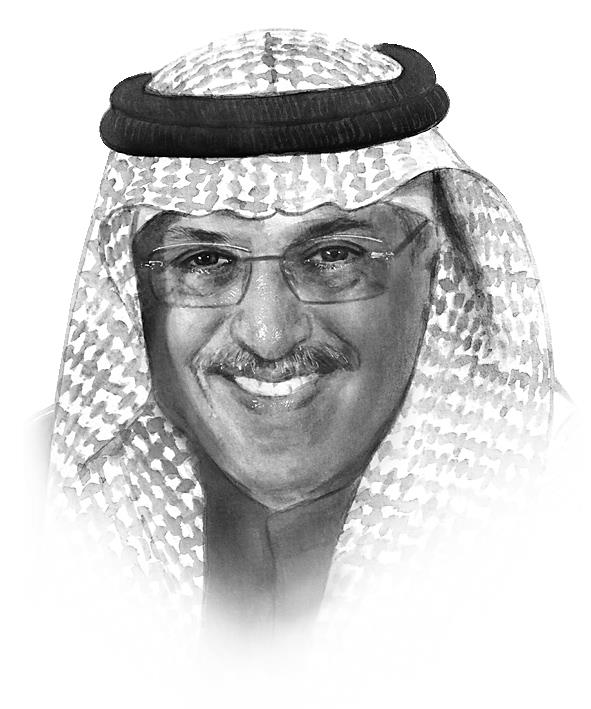
Riyadh last Wednesday hosted an important GCC-US security meeting, which focused on maritime security and missile defense. Working groups on these two subjects were formed in 2015 under the GCC-US Strategic Partnership framework that was set up following the meeting between GCC leaders and President Barack Obama at Camp David in May 2015.
This month marks the 10th anniversary of the establishment of the GCC-US Strategic Cooperation Forum, which launched in Riyadh on March 31, 2012. Inaugurating the new forum were then-US Secretary of State Hillary Clinton and the late Prince Saud Al-Faisal, who was at the time Saudi Arabia’s foreign minister and chairman of the GCC Ministerial Council. Both stressed the importance of establishing a multilateral platform for cooperation between the US and GCC member states to augment and support bilateral channels of engagement. It was recognized that there were certain issues that could benefit from collective GCC-US partnership, including the implementation of an integrated ballistic missile defense and maritime security.
The SCF was set up in March 2012 following the US troop withdrawal from Iraq in December 2011. Although GCC countries were opposed to the invasion of Iraq in 2003, they nevertheless believed that the 2011 withdrawal was premature in light of the instability in Iraq at the time, the continued terrorist threats posed by Al-Qaeda and Iran’s destabilizing activities in Iraq. The newly structured cooperation mechanism provided a framework to discuss post-withdrawal regional challenges, including security threats.
The SCF encompassed meetings at the ministerial level, as well as more technical and specialized levels covering a wide range of issues. The success of SCF led to the next step, which was meetings at the heads of state level and the establishment of the GCC-US Strategic Partnership in May 2015.
Several working groups set up under this multilateral partnership have met since then. Under the Biden administration, there was a ministerial meeting last September and the GCC-Iran Working Group met in Riyadh in November to discuss overall policy toward Iran, in addition to several inter-sessional consultations on the Vienna talks. Meetings last week of the two working groups on maritime security and integrated air defense were the latest.
In last week’s meeting, held at the GCC’s headquarters in Riyadh, the two working groups evaluated the range of threats to the region with a focus on the air and sea domains. They reaffirmed the November 2021 statement of the GCC-US Iran Working Group, again condemning “Iran’s malign behavior through proxies and direct use of advanced ballistic missiles, cruise missiles, and Unmanned Aircraft Systems.” Iran has used these weapons and supported terrorist organizations, such as Hezbollah of Lebanon and the Houthis of Yemen, and other terrorist and armed groups to conduct hundreds of attacks in the region, including on Saudi Arabia, the UAE and the Global Coalition Against Daesh.
They also stressed the importance of strengthening the ability of GCC countries to collectively address these threats and developed a “common vision for deterring the most pressing threats in the region from air, missile and maritime threats.”
At the conclusion of their meetings last week, the two sides agreed on the importance of advancing integrated defense initiatives to defend against and deter air, missile and maritime threats. They welcomed new opportunities to work together — including through joint training and exercises to prevent Iran from putting the region at risk through its proliferation and direct use of advanced ballistic missiles, cruise missiles, maritime weapons and drones, which “pose a clear threat to regional security and stability.”
The two sides last week agreed on the importance of advancing integrated defense initiatives to defend against and deter air, missile and maritime threats.
Dr. Abdel Aziz Aluwaisheg
The US and GCC representatives reaffirmed their “long-standing defense partnership” and expressed “shared commitment to regional security under the framework of the GCC-US Strategic Partnership.”
While GCC-US working groups coordinate policy, there is continuous operational cooperation through other frameworks, including the Combined Maritime Forces and its three existing task forces, where both the US and GCC member states are members. The GCC coordinates its own defense cooperation through several entities, including the GCC Unified Military Command based in Saudi Arabia and the GCC Naval Operational Center based in Bahrain.
Coordinating between these overlapping mandates for regional cooperation is important, as is coordination between multilateral GCC-US partnership and US bilateral engagement with each member state. All of these frameworks are very important, especially as demands on US forces are growing in this and other regions. It is therefore important to allocate tasks among these frameworks to maximize efficiency. The GCC is a treaty-based cohesive security organization, which means that it could conduct certain levels of policy and joint action more effectively than other multilateral frameworks. For example, the GCC Mutual Defense Treaty established the basis for collective defense in Article 2, comparable to NATO’s Article 5.
The Ukraine crisis is already causing tremors in other parts of the world besides Europe, destabilizing markets and threatening to polarize simmering conflicts. Dealing with these developments requires urgent coordination between the US and its GCC partners at all levels to safeguard the security of the region and immunize it against contagion from the Ukraine war.
A more comprehensive and sustained GCC-US dialogue on regional security is needed now more than ever to deal with emerging threats and to bolster cooperation in all areas.
Dr. Abdel Aziz Aluwaisheg is the GCC Assistant Secretary-General for Political Affairs & Negotiation, and a columnist for Arab News. The views expressed in this piece are personal and do not necessarily represent GCC views. Twitter: @abuhamad1
Disclaimer: Views expressed by writers in this section are their own and do not necessarily reflect Arab News" point of view





